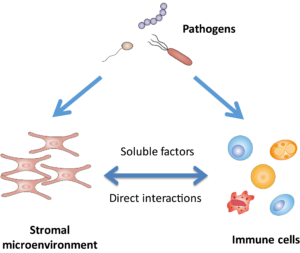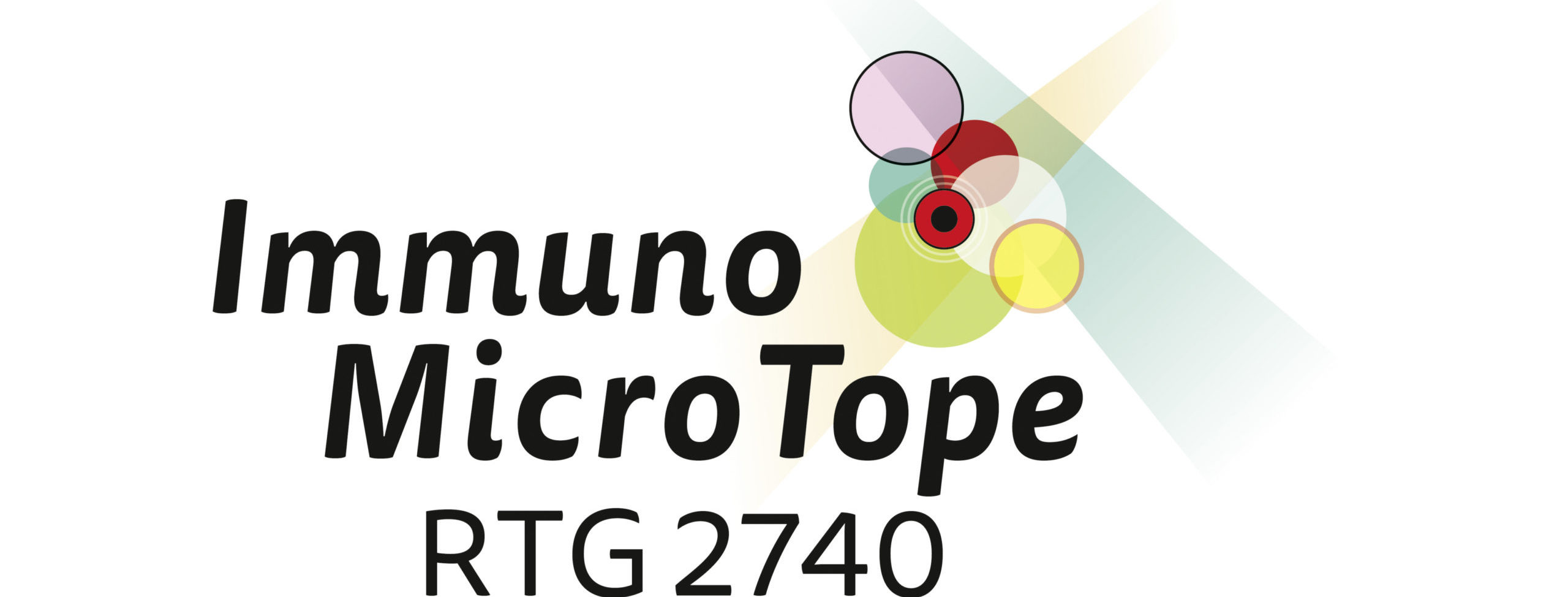A4: The regulatory role of fibroblastic reticular cells during intestinal bacterial infections
A4: Characterization of the local micromilieu supporting intestinal Eimeria infection
Gut-associated protozoa are a group of heterogenous eucaryotic microbes frequently found also within humans. During gastrointestinal infections, these protists are believed to display metabolic activities that contribute to the establishment of ecological niches within the gut microbiota supporting their survival in the host. How these local micromilieus are established and how such changes affect epithelial and immune cell populations in the gut-associated lymphoid tissues remains largely underexplored. The gut-dwelling apicomplexan protists Eimeria vermiformis and Eimeria falciformis are closely related, but specifically establish in different anatomical compartments of the intestine (small or large bowel wall). In this project, we aim to use these model organisms to precisely understand and compare the molecular mechanisms supporting the maintenance of their infectious cycles. Using whole genome shotgun sequencing (WGS), mass-spectrometry and several immunological approaches, we will comprehensively characterize the local changes within the microbiome, metabolome and the immune compartment in vivo. We will furthermore use in vitro experiments with primary colonic and small intestinal organoids and isolated intestinal immune cell subsets to characterize, how microbial and metabolic shifts control local host-protozoan interactions.

Supervisor
PD Dr. rer. nat. Dr. med. habil. Stefan Wirtz
91052 Erlangen
- Phone number: 09131853588235960
- Mobile phone: +49 9131 85-45075
- Email: stefan.wirtz@uk-erlangen.de
- Website: http://www.medizin1.uk-erlangen.de/

